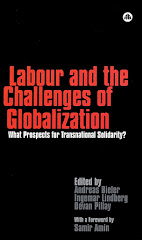The
socioeconomic landscape of Latin America by the end of the 20th
century epitomised perfectly the relenting and damaging effects that
neoliberalism had on the countries of the Global South, bringing poverty and
instability to an already vulnerable continent. In response, a number of
left-leaning governments and movements, known as the ‘Pink Tide’, came to power
at the cusp of the 21st century. No longer would Latin American
societies have to live and work within countries that had downsized their
public sectors and deregulated their labour markets. In this guest post by Magdalena Tanev, the governments of
Bolivia under Morales and Venezuela under Chávez are compared to understand the
means necessary to reject the neoliberal economic model. Additionally, she will
look at the experience of the EZLN (Ejercito
Zapatista de Liberación Nacional), which emphasises an autonomous form of
government in defiance of the Mexican state, to establish whether taking state
power is the most effective way to resist global capitalism.
Saturday 16 December 2017
Saturday 9 December 2017
In whose interest? The need for a new economics.
The global financial
crisis shook the global economy in 2007/2008 and its fallout can still be felt
in the form of high unemployment, permanent austerity and wage stagnation. In
the immediate aftermath, many started to question the neo-liberal assumptions
about the benefits of the ‘free market’. Had it not been the deregulation of
financial markets and here in particular the financial markets in the US, which
had caused the crisis in the first place? And yet, almost ten years later, neo-liberal
economics continues to reign supreme. In this blog post, I will assess the
strange non-death of neo-liberal economics and its implications for the
politics of the British Labour Party under Jeremy Corbyn and John McDonnell.
Friday 1 December 2017
The Struggle for Development: CSSGJ Annual Lecture 2017.
On Monday, 27 November Ben Selwyn from Sussex
University gave the Annual Lecture 2017 of the Centre for the Study of
Social and Global Justice (CSSGJ). In his excellent lecture, Selwyn
drew heavily on his new book The Struggle for Development (Polity, 2017). I
will reflect on some of the key themes in this blog post including labour-centred development and the possibility of system transformation through democratisation of the economy.
Subscribe to:
Posts (Atom)













